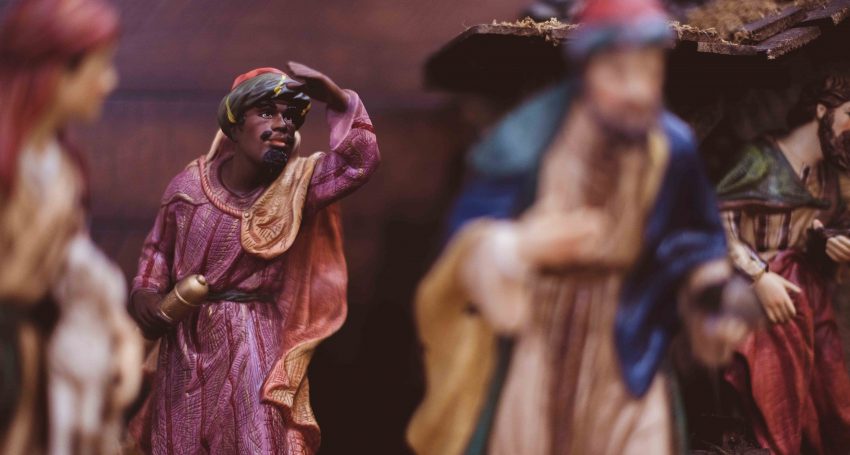The history and meaning of the Epiphany
Reflections
The Ven. Keith Dean-Jones explores the history and meaning of the Feast of the Epiphany, which will be celebrated on Sunday 6 January

In Australia, Christmas celebrations begin in November and, as a result, it is often difficult to observe ‘Christmastide’, the twelve days between Christmas and the Epiphany. We do the same with Easter, and I suspect that chocolate eggs will appear in shops before the end of January!
The term ‘epiphany’ is Greek, and in the Book of Common Prayer the Feast is subtitled ‘The Manifestation of Christ to the Gentiles’. It is older than Christmas (established as a universal observance by the fourth century), and in the early Church it was observed as a celebration of the baptism of Jesus. Eastern Orthodox Christians maintain this emphasis, but in the west it is observed as a celebration of the visitation of the magi (the wise men). Before the establishment of the Feast of Christmas, the Epiphany ranked in importance after Easter and Pentecost.
Advertisement
The only biblical reference to the magi is in the Holy Gospel according to Matthew (2: 1-12). Matthew links the good news of Jesus with Old Testament prophecy, and he states that King Herod the Great directed the magi to Bethlehem, the place predicted by Micah as the location of the Messiah’s birth (Micah 5: 2). Their number, three, is suggested by their three gifts of gold, frankincense and myrrh, and the belief that they were kings is suggested by both prophecy in the Book of Psalms, “may the kings of Tarshish and of the isles render him tribute, may the kings of Sheba and Seba bring gifts!” (Psalm 72: 10) and the prophecy of Isaiah, “nations shall come to your light and kings to the brightness of your dawn…they shall bring gold and frankincense” (Isaiah 60: 3, 6). It is very unlikely that the magi were rulers.
There are three important aspects of the story.
First, that it is to non-Jewish people that the Messiah is revealed. The prophet Isaiah predicts that the people of God will be a “light to the nations that my salvation may reach to the end of the earth” (Isaiah 49: 6). Jesus is the “light for revelation to the Gentiles” (Luke 2: 32), and the tradition that one of the magi is represented with a black face suggests the universality of Jesus’ saving work. In Old Testament times, Jewish people struggled with the tension of universalism and particularism, but the deeper tradition embedded in the Hebrew scriptures is that, as God’s chosen people, they are responsible for all humanity, and not merely the biological descendants of Abraham and Sarah. In his ministry, Jesus broke out of the confines of particularism, and in the Parable of the Good Samaritan the true son of Abraham is an outsider (Luke 10: 29-37).
Advertisement
Secondly, the magi offered worship (Matthew 2: 11). Jesus invites us to worship God so that we may be set free. We live in a culture that is imprisoned in the worship of the false gods of money, status, materialism and selfishness. Writing to the Corinthians, Paul refers to ‘idols’ and then uses the term ‘demons’ (I Corinthians 10: 20). I think that he is making an important point. We all need to be liberated from the idolatry that drags us down and imprisons us with fear, despair and self loathing. God wants us to be happy, to be men and women who experience peace and who recognise that life can be filled with purpose and joy. This goal is achieve when we offer our worship to Him.
Thirdly, the magi were overwhelmed with joy. Our deepest desire is union with God, and the cry of the psalmist, “As a deer longs for the flowing streams, so my soul longs for you, O God” (Psalm 42: 1), is the cry of all men and women. St Augustine of Hippo (354-430) expressed it in these words: “You have made us for yourself, and our hearts are restless until they rest in you” (Confessions 1). The second of the nine gifts of the Spirit is joy (Galatians 5:22), a quality that many Christians seem to lack. Frederick Nietzsche (1844-1900), a critic of Christianity, once observed: “I might believe in the Redeemer if his followers looked more redeemed”. Life is often difficult, but as Christians we recognise that “there lives the dearest freshness deep down things…because the Holy Ghost over the bent world broods with warm breast and with ah! bright wings” (Gerard Manley Hopkins, God’s Grandeur 1844-1889).





